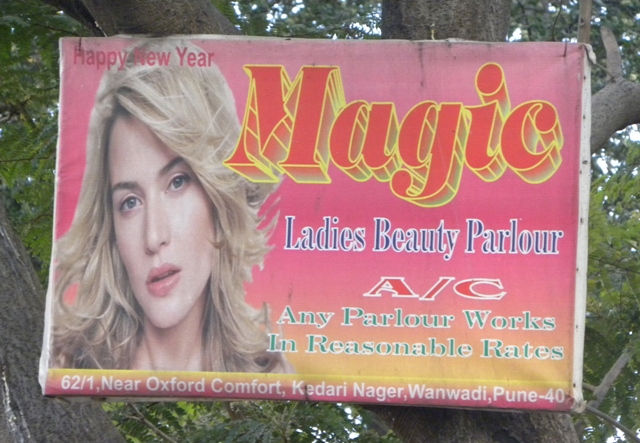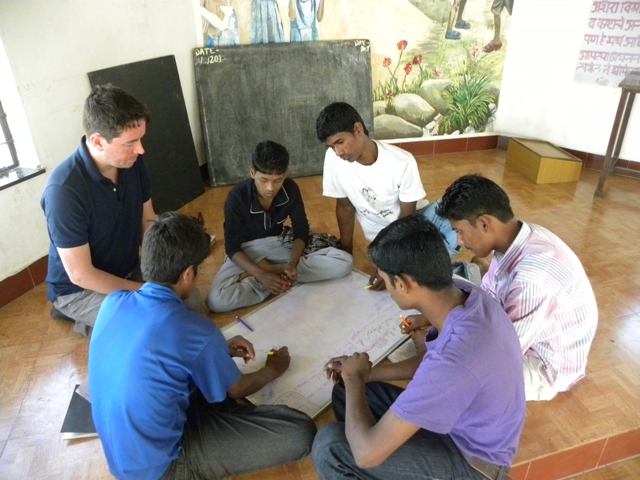I went to the local Anglican
church with Dr Neela Onawale, the director of DGS. It’s a colonial building next
to the old British army cantonment, which is now home to the Indian Army’s
Southern Command. Though she was a child at Independence
Pune was once the most important
army base of the British Raj. The church is full of the plaques and memorials
you’d find in any English church – remembering lots of posh folks from familiar
villages, many of whom ‘died at Poonah’ (the colonial spelling of Pune). A large proportion were younger than I
am now when they died, usually victims of malaria or battle. One large brass
plaque reminds us of the segregation that was rife at the time with its
reference to the ‘Officers British and native’.
The plaques struck me as a
strange kind of relic in a church now populated by saris and bare feet.
The service was just like any
you would find in an Anglican church at home, though at nearly two hours it was
at the longer end of the scale. The liturgy followed the Book of Common Prayer and
the hymns were very familiar. The tunes were more of a surprise and it took me
a few seconds to place them: ‘Once in Royal David’s City’ and ‘It Came Upon a
Midnight Clear’, belted out in the searing heat. Apparently the musical
director selects melodies to accompany each Sunday’s hymns according to their popularity.
And Christmas has all the best tunes.
Even beyond church Yuletide ditties seem to be all the rage here – from mobile ring tones to fridges. I am woken up with a dose in irony each morning by truck with its ‘vehicle reversing’ warning set to ‘Silent Night’. In the office I often hear an electronic rendition of ‘Joy to the World’ coming in through the open window. I haven’t yet worked out what kind of device it comes from. Where I live the fridge sings a slightly less festive ‘It’s a small world after all’ if you leave the door open for more than five seconds. I can’t imagine a jingle better placed to ensure you close the door quickly.
Back to church:
The theme of the service was healing, and the sermon was delivered by a local
doctor. He focused on preventing health problems through a healthy lifestyle. I
do like present-day relevance in a sermon. The congregation was urged to get
some sun, ‘even five minutes a day’, and to keep away from skin lightening
creams (popular in colour-conscious India UK
(This one is from the Anglican cathedral in Bombay)










































